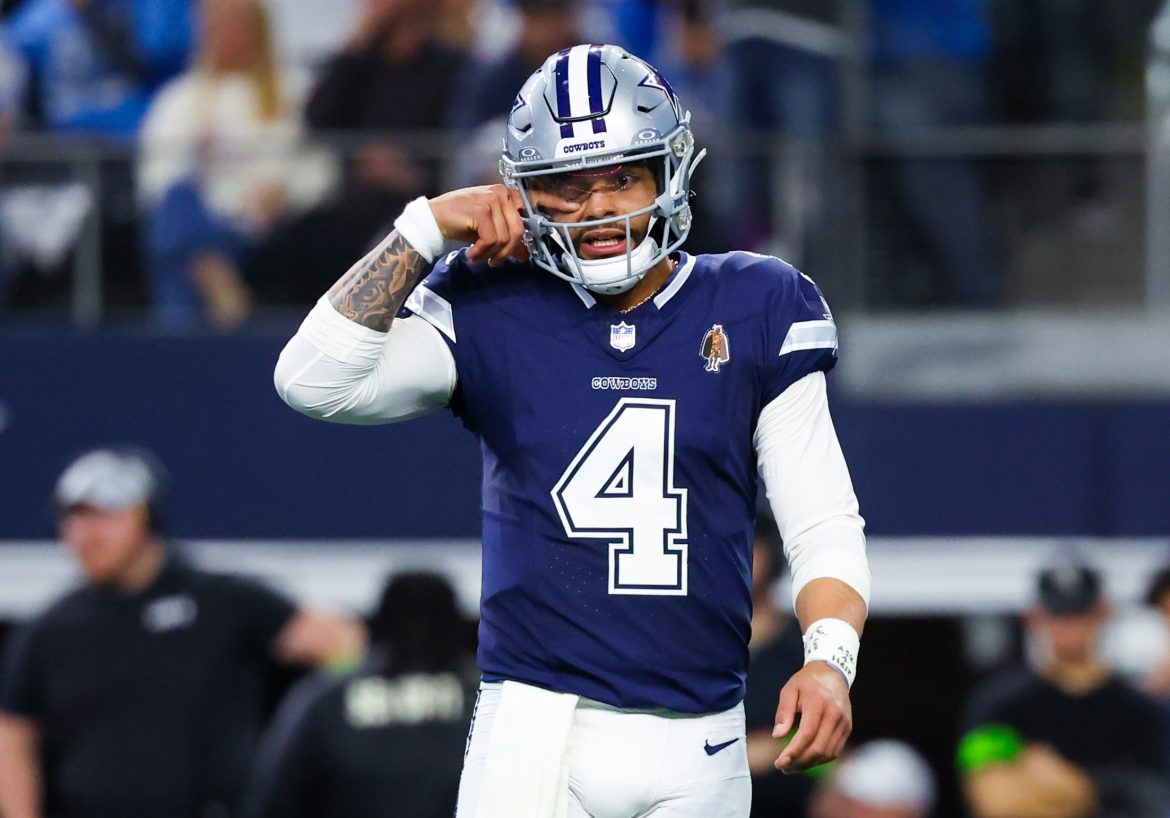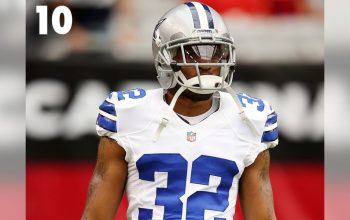The Dallas Cowboys are facing a critical decision that could shape the future of their franchise for years to come: should they pay Dak Prescott £60 million per year, or risk descending into the dreaded QB purgatory? As the clock ticks, the stakes have never been higher for “America’s Team.”
Dak Prescott, the Cowboys’ star quarterback, has proven himself to be one of the elite QBs in the NFL. His combination of leadership, athleticism, and skill has been instrumental in the Cowboys’ recent successes. However, with his contract negotiations looming, the Cowboys must decide whether to meet Prescott’s hefty salary demands or gamble on finding a replacement who can deliver similar results.
Prescott’s value to the Cowboys cannot be overstated. Since being drafted in the fourth round in 2016, he has consistently performed at a high level, earning two Pro Bowl selections and leading the Cowboys to multiple playoff appearances. His ability to make plays with both his arm and legs makes him a dual-threat quarterback, a rarity in the league. Moreover, his leadership qualities and work ethic have earned him the respect of his teammates and coaches alike.
The proposed £60 million per year salary would make Prescott one of the highest-paid quarterbacks in the NFL. While this figure might seem astronomical, it reflects the market rate for top-tier quarterbacks in the league. Players like Patrick Mahomes and Josh Allen have set a precedent with their lucrative contracts, and Prescott’s representatives are keenly aware of his market value.
However, the Cowboys find themselves in a precarious position. Committing such a significant portion of their salary cap to one player could limit their ability to build a balanced and competitive roster. The NFL is a league of parity, and teams that can spread their financial resources effectively across the roster tend to have more sustained success. Overpaying for a quarterback can lead to deficiencies in other areas, such as the offensive line, defense, or skill positions.
On the other hand, the alternative—allowing Prescott to walk—carries its own set of risks. Finding a franchise quarterback is notoriously difficult, and teams that fail to do so often find themselves in “QB purgatory,” cycling through mediocre or unproven quarterbacks without any long-term stability. The Cowboys have experienced this firsthand in the years following Troy Aikman’s retirement until Tony Romo emerged as a reliable starter.
The market for quarterbacks is always competitive, and if the Cowboys choose not to pay Prescott, they would need to either draft a new quarterback or sign a free agent. The draft is always a gamble, and free agents with Prescott’s caliber are rare and often come with their own high price tags.
Jerry Jones, the Cowboys’ owner and general manager, is no stranger to high-stakes decisions. He understands the importance of stability at the quarterback position and the impact it has on the franchise’s success both on the field and financially. The Cowboys’ brand, one of the most valuable in sports, is closely tied to their performance, and a star quarterback is a central figure in that equation.
As the deadline for contract negotiations approaches, the pressure mounts for Jones and the Cowboys’ front office. They must weigh the pros and cons carefully and make a decision that balances short-term needs with long-term goals. Whether they decide to pay Dak Prescott the £60 million he seeks or risk venturing into the uncertain waters of QB purgatory, one thing is certain: the clock is ticking for the Dallas Cowboys, and the entire NFL is watching.

